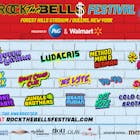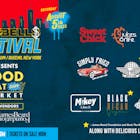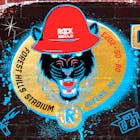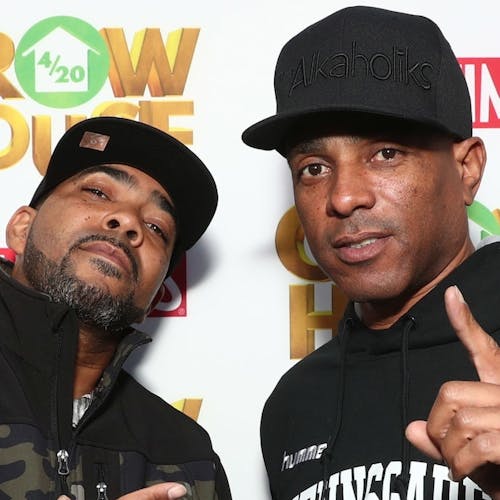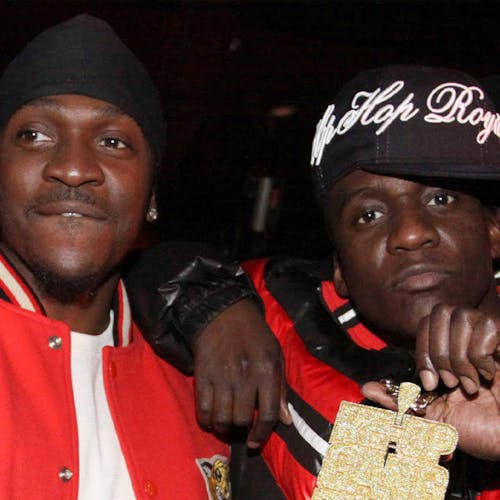
Hip-Hop And Vinyl: An Elevated Experience
Hip-Hop And Vinyl: An Elevated Experience
By Jay Quan
Published Sat, July 29, 2023 at 10:00 AM EDT
Presented in partnership with Vinyl Me Please
The Death of Vinyl Records
Vinyl recordings have experienced a great resurgence in visibility and sales in popular culture over the last decade. Although the cassette and 8-track formats existed and were popular throughout the reign of vinyl's '70s and '80s run, vinyl was the dominant medium for music consumption for most of that time. Whether it was the larger graphics of the album covers (which doubled as wall art), the warmth and clarity of the audio (especially compared to the other available formats), or the fact that putting the needle on the record, adjusting the speed, and changing records felt more interactive, vinyl records were the preferred format until compact disc technology became affordable.
In 1982, in Japan, Billy Joel's 52nd Street was the first CD ever manufactured. In 1988, CD sales surpassed the sales of vinyl records, and by the next year, they outsold cassette tapes, which were beginning to outsell vinyl records mainly due to the popularity of portable cassette players and the fact that automobiles contained cassette tape players. By the early '90s, the manufacturing of vinyl records had come to a halt, which had an adverse effect on Hip-Hop DJs in this pre-MP3 and Serato era. A listen to Boogie Down Productions' 1992 album, Sex And Violence, reveals an opening skit of dying DJs screaming that they are dying because they need vinyl.
Vinyl, The Turntable & Hip-Hop
Hip-Hop culture and its musical component of Rap music were birthed at a time when vinyl was the most popular musical format. The DJs' desire to play continuous music for the community resulted in the building of sound systems with record players, and later, standalone turntables at the core. DJs and aspiring DJs used copies of vinyl records, which often belonged to parents and other family members, to build the culture that we call Hip-Hop. Vinyl records were as vital to the musical foundation and creation of Hip-Hop as the turntable and the DJ. None of the elements in the equation—the DJ, the turntable, and vinyl—could exist without their counterparts.
When rap music moved from parks, playgrounds, and clubs to recordings in 1979, it debuted on vinyl. Only a few of the earliest rap recordings were released on 8-Track and cassette tapes, but the overwhelming majority of copies sold were released on vinyl, making rare rap cassettes and even rarer 8-tracks valuable collector's items today.


Touching The Record
Although radio station and nightclub DJs who were not Hip-Hop DJs used vinyl records and two turntables to keep music continuously playing, the Hip-Hop DJ went beyond just playing music. Early Hip-Hop DJs like Grandmaster Flash and Grand Wizzard Theodore transformed the turntable into an instrument. Through cutting, scratching, and back spinning techniques, these DJs inspired legions of young people to become DJs and learn the unorthodox skill of actually touching records (as it was previously forbidden to touch the delicate surface of a vinyl record). Hip-Hop single-handedly elevated the DJ to star status, turned the turntable into a musical instrument, and made vinyl records an essential tool.
In the sampling era of the late 1980s, vinyl records once again became the primary source material for sampling producers and DJs to create music, giving rise to the term "diggin'," short for "diggin' in the crates," which describes the act of searching for old vinyl records to create new music.
Grandmaster Flash was the first DJ to perform in arenas and coliseums in the early '80s with his group, The Furious 5. While other groups of the time used live bands on tour, during the legendary Sugar Hill Records sponsored "Rappers Convention" tours of 1981, Grandmaster Flash showcased to the world outside of New York what a Hip-Hop DJ is and what they do. In the second generation of recorded rap music, DJs like Jam Master Jay, Grandmaster Dee, Mix Master Ice, and Cut Creator further demonstrated the role of the Hip-Hop DJ on the hugely successful and influential "Fresh Festival" tours. Once again, vinyl records served as the tools that DJs used on tour and the preferred format that consumers purchased their music on.
The Rebirth of Vinyl
The compact disc, with its crisp digital sound and small circumference, became the preferred format for music sales, reaching its peak in 2002 before beginning to decline the following year. The release of the iPod in 2001, along with the rise of other MP3 players and streaming services, led to the replacement of CDs. According to Retro Manufacturing, CD sales plummeted to levels last seen in 1985 by 2016. In 2018, both Best Buy and Target announced that they would stop selling CDs.
Over the past decade or so, turntables and vinyl records have been featured in many movies, television commercials, and other areas of popular culture. They are now even sold in stores like Target and Walmart. In 2007, Record Store Day was conceived as a way to celebrate the cultural significance of independent record stores and vinyl culture. Record Store Day often includes special releases, live in-store performances, and artist meet-and-greets.
It was recently announced that vinyl records have outsold CDs for the first time since 1987. According to the Recording Industry Association of America (RIAA), 41 million vinyl records were sold last year, compared to 1.3 million in 2007, the year Record Store Day was conceived. Record pressing plants, which manufacture vinyl records, are now backed up for months, a significant change from the early 2000s when many were closing their doors. Turntable manufacturers are thriving, and many households now contain turntables and vinyl collections. Vinyl is cool again, although for many in Hip-Hop, it has always been.
